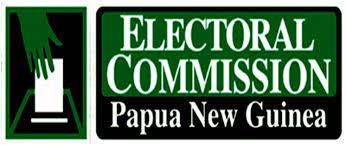Papua New Guinea’s Common roll, important for the voting population in the 2022 National General Elections has one glaring loophole, it is incomplete.
It is inaccurate and not up to date.
Figures coming in from provinces paint a picture of incompetence, inconvenience and ineffectiveness, which will unfortunately result in a missed opportunity for millions of eligible voters whose names are not on the roll.
Many of those who voted in 2002, 2007, and possibly 2017, will find that their names are not on the Common Roll in 2022 because an update of the roll, registration of new voters, started this year, ran out of steam.
While the PNG Electoral Commissioner Simon Sinai maintains more than 6 million voters will be eligible, it is not known at this stage which common roll will be used in 2022.
Three weeks to go before the polls and the accuracy of the Electoral Roll for the 2022 National General Election is now an issue, following revelation by provinces that many eligible voters were not registered.
According to a random check with several provinces, more than a million people were not registered and this number is expected to go up when all the figures of eligible voters that have not enrolled for various reasons are counted.
Officials in East Sepik, Milne Bay, National Capital District, Madang and Northern (Oro) provinces, say insufficient enrollment forms, shortage of funding and lack of time were among the main factors that contributed the failure to update the Electoral Roll properly.
“The Common (Electoral) Roll is the biggest issue with us at the moment. A large number of our voter population of almost 300,000 voters is not on the Common Roll,” East Sepik election manager, James Piapia said.
In NCD, Assistant Election Manager Roselyn Tabogani confirmed that only 400,000 voters of almost a million were captured in the electoral roll.
“NCD was the last province to go out for enrollment. We did enrollment in the whole of March which is not enough.”
She confirmed reports from other provinces that there was not enough time for the Common Roll update teams to complete the exercise, leaving thousands out.
These provinces were joined by Northern and Milne Bay, whose officials confirmed that both budget and timing constraints limited their ability to update the electoral roll properly.
Electoral Commissioner Simon Sinai announced recently that the Electoral Roll was completed and 6.2 million people were registered to cast their votes throughout the country.
The revelation by the provinces has now thrown the integrity of the report into question, and this is not the first time the Electoral Roll was not updated properly to ensure every eligible voter in the country is given the right to vote.
In the previous elections, for example in 2002, 2007 and 2012, issues surrounding the Electoral Roll were observed and international election observers like the Commonwealth Observer Group reported serious flaws in the Electoral Roll.
“Significant issues with the voter registration process were an unfortunate feature of the 2017 National Election, with a large number of names missing from the electoral roll, the Commonwealth Group reported.
“That sufficient funding and equipment by allocated for the periodic and regular enrolment, updating, and cleansing of the electoral roll, at least once every 18 months and that permanent enrollment teams be employed at provincial levels to be managed by provincial election officers to travel across the electorate to record voter information and do it electronically and are adequately paid to do that job,” another observer group, the Pacific Islands Forum Election Observer team recommended.
More than 1000 international observers were deployed into the country to observe the 2017 election and they reported that the shortcomings in the conduct of the 2017 elections were attributed to two overarching causes.
These, they said, were the late and inadequate disbursement of funds by the government to the PNGEC to carry out its work and the significant delays in implementing electoral plans and preparatory work.
SOURCE: POST COURIER/PACNEWS














[…] in democracy like a lack of trust in electoral integrity – mass violence, burnt ballot boxes, incomplete electoral rolls. The Marape government will need to improve election security, update rolls and maintain a system […]